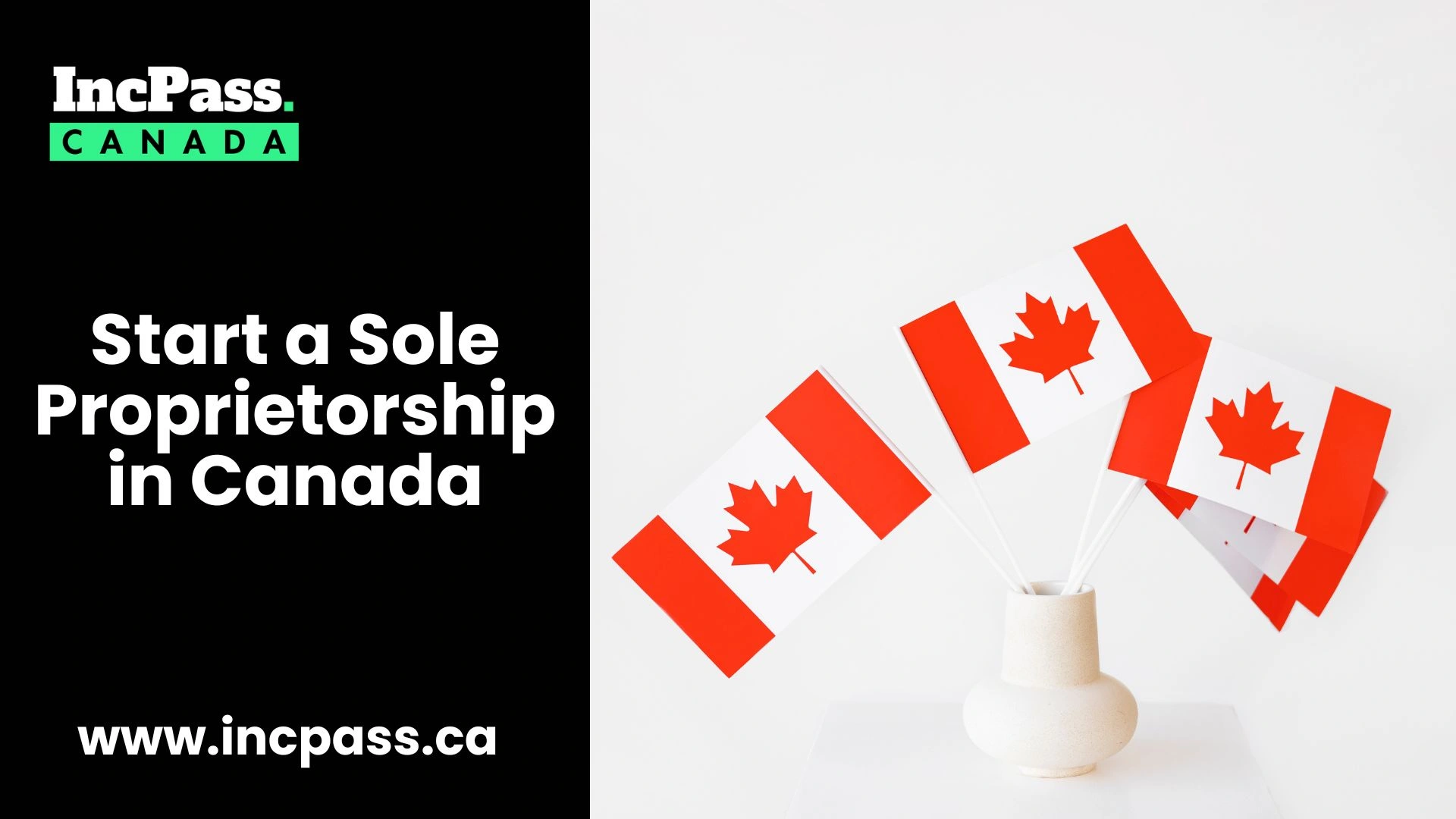Being an entrepreneur may be a rewarding and financially sustainable career choice, but it also requires the dedication needed to build a business from the ground up. The official registration of a business is a crucial step for anybody hoping to pursue an entrepreneurial career. If concerns about costs, time commitment, or the complexities of the registration procedure prevent you from moving further. Independent business registration can be a difficult, time-consuming, and complicated process. Incpass Canada is here to assist you.
What is Sole Proprietorship?
A sole proprietorship is the simplest business form in Canada, in which a one owner bears all of the company’s income, obligations, and legal liabilities. Sole proprietorships are taxed at your personal income tax rate, and they are also the most affordable and simple business kinds in Canada in terms of registration and ongoing needs.
A sole proprietor can be a freelancer who runs a one-person business, but they can also subcontract or hire others.
A sole proprietorship is the most typical structure selected by new businesses since it is informal and simple to set up.
Benefits of Starting a Sole Proprietorship in Canada
- Simplicity: Establishing a single proprietorship is simple and requires few formalities when compared to other business models. This simplicity also applies to tax reporting and compliance needs.
- Full Control: As the sole owner, you have total authority over decisions and operations. You can make rapid judgments and execute changes without requiring approval from partners or shareholders.
- Direct Profits: The owner receives all of the business’s profits. There is no need to split gains with partners or stockholders, enabling for immediate financial gain.
- Tax Advantages: Sole proprietors are eligible for tax breaks and credits that are not accessible to workers or other business types. Furthermore, corporate losses can be used to offset other types of income on personal tax returns.
- Flexibility: Sole proprietorships provide freedom in business form and administration. Owners are able to change the business model, goods, or services to reflect changing market conditions or personal preferences.
- Low Startup Costs: Establishing a sole proprietorship usually involves less initial capital than creating a corporation or partnership. Less money is spent on administrative and legal fees during the setup phase.
- Privacy: Sole proprietorships provide a measure of anonymity since they are not required to publicly reveal financial or ownership information, as corporations sometimes do.
- Ease of Closure: If the business needs to be closed or dissolved, the process is relatively straightforward compared to other business structures. There are fewer legal formalities and obligations to fulfill, simplifying the wind-down process.
Disadvantages of Opening a Sole Proprietorship
- Limited potential for Development: As a sole proprietor, you may have constraints on how much your business may develop.
- Unlimited Liability: Your private possessions, such as your house or money, may be affected if your business goes bankrupt or is sued.
- Lot of Workload: As the only owner of your firm, you will most likely have to wear numerous hats, which may result in a high workload or burnout.
- Imbalance of Income: Your income may fluctuate based on the performance of your firm; unlike an employee, you will not receive a regular, guaranteed paycheck.
- Financial Problems: Sole owners frequently have problems acquiring financing or borrowing finances.
How to Start a Sole Proprietorship in Canada?
Choose name for your business
Pick a distinguished name and this is not just the name — it is the identity of your business! You must make sure it’s unique and not used by other businesses in your province or territory. You can do that via the NUANS name search available.
Register a name of your business
When you have a name picked out and made sure that nobody else is using it, you’ll need to register the name with the right provincial or territorial government department that deals with business names. Kindly note that registration and cost may differ according to where you are based.
Obtain Licenses and Permits
The type of your business may determine whether you need to procure licenses or permits from government agencies, the boards of directors or regulatory bodies. Research the specific regulations for your setting and the industry you are in.
Register for Taxation
If your business needs to hire the staff or you are obliged to collect the Goods and Services Tax/Harmonized Sales Tax (GST/HST) or the Provincial Sales Tax (PST) from your clients, then it is necessary to register for the related tax counts.
Sole Proprietorship vs. Partnership
In a business partnership, two or more individuals work together for the purpose of having an inherent division of labor, ownership, and profits. It is the whole a different kettle of fish from the sole proprietorship in which one person has all control and accountability for the risk, as well as all the rewards.
It is worth noticing that these partnerships and sole proprietorships do not differ a lot with respect to their basic characteristics. Say taxing of the profits, they are both easy to set up, since the owners, whether it’s the sole proprietor or the partners, give personal guarantees to the business’s bad debts. Similarly, the income of both types of businesses is taxed at personal income tax return.
Sole Proprietorship vs. Corporation
A corporation is a different structure altogether: a corporation is an entity different from a sole proprietorship, as the latter enjoys certain rights and liability which it can claim as its own. The owners receive a share based on their contributions to the organization, and they aren’t personally liable for the company’s debts. Corporations deal with their tax matters, like all other corporations, and prepare their own tax filings. Unlike partnerships, corporations don’t really share any similarities with sole proprietorships, other than having the same ultimate goal: maximizing sales results.
Conclusion
Starting a sole proprietorship in Canada could be an adventurous endeavor with certain advantages such as: freedom, gain of control, and financial gains. Nevertheless, it is a must to engage in this process systematically and with a great deal of care. The careful completion of required tasks like selecting a business name, registering with the competent authority and understanding the tax system, can serve as a sturdy basis for your business. Make sure to always seek advice from professionals if you need and stay organized with your business financial matters. Also, periodically adjust your business and industry needs to their innovations. Through efforts and patience, the single proprietorship may boom and sustain in the Canadian market.
Frequently Asked Questions
Can my sole proprietorship be changed into another business structure?
Indeed, you can develop your sole proprietorship into a partnership, corporation, or any other business entity that suits the growth of your business. Consult your legal and financial experts in order to find the most suitable option for you.
What are the minimum capital requirements to start a sole proprietorship in Canada?
No, there is no minimum capital needed to start a sole proprietorship in Canada.
Can I recruit staff as a sole proprietor?
Yes, solopreneur can employ others to assist operate their enterprises. However, they are responsible for complying with employment laws and regulations, including payroll deductions and remittances.




